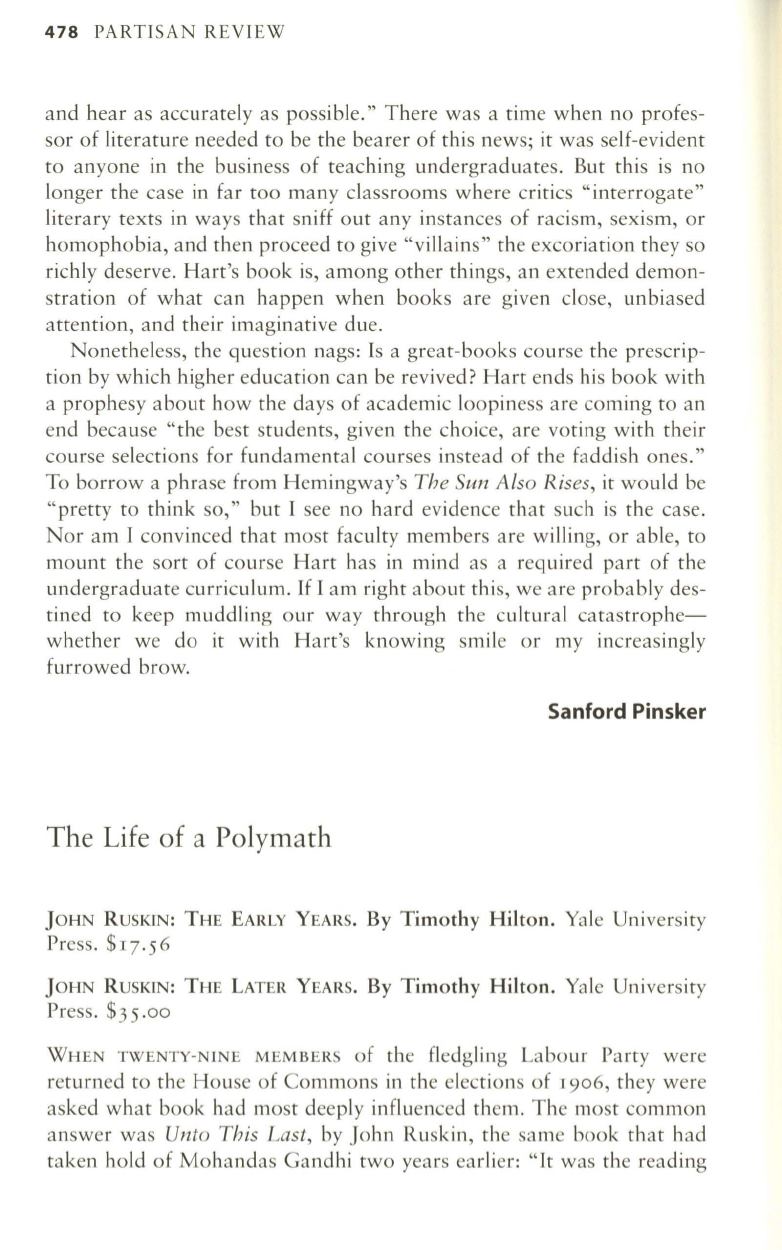
478
PARTISAN REVIEW
and hear as accurately as possible." There was a time when no profes–
sor of literature needed to be the bearer of this news; it was self-evident
to
anyone in the business of teaching undergraduates. But this is no
longer the case in far too many classrooms where critics "interrogate"
literary texts in ways that sniff out any instances of racism, sexism, or
homophobia, and then proceed to give "villains" the excoriation they so
richly deserve. Hart's book is, among other things, an extended demon–
stration of what can happen when books are given close, unbiased
attention, and their imaginative due.
Nonetheless, the question nags: Is a great-books course the prescrip–
tion by which higher education can be revived? Hart ends his book with
a prophesy about how the days of academic loopiness are coming
to
an
end because "the best students, given the choice, are voting with their
course selections for fundamental courses instead of the faddish ones."
To borrow a phrase from Hemingway's
The Sun Also Rises,
it would be
"pretty
to
think so," but I see no hard evidence that such is the case.
Nor am I convinced that most faculty members are willing, or able,
to
mount the sort of course Hart has in mind as a required part of the
undergraduate curriculum.
If
I am right about this, we are probably des–
tined to keep muddling our way through the cultural catastrophe–
whether we do it with Hart's knowing smile or my increasingly
furrowed brow.
Sanford Pinsker
The Life of a Polymath
JOHN RUSKIN: THE EARLY YEARS. By Timothy Hilton. Yale University
Press.
$17.56
JOHN RUSKIN: THE LATER YEARS. By Timothy Hilton. Yale University
Press.
$
35.00
WHEN TWENTY-NINE MEMBERS of the fledgling Labour Party were
returned
to
the House of Commons in the elections of
1906,
they were
asked what book had most deeply influenced them. The most common
answer was
Unto This Last,
by John Ruskin, the same book that had
taken hold of Mohandas Gandhi two years earlier: "It was the reading


